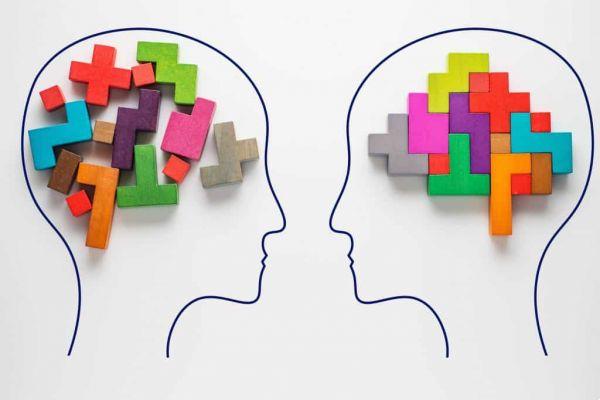In moments of stress and tension, what is your first reaction? Some people try to take a deep breath, drink water and solve the problem. Others, however, end up taking these negative feelings out on other individuals, who are not always related to the problem itself.
Or, in a moment of sadness and anger, there are those who imagine that it is better to keep these feelings. And as an opposite effect, they end up turning into resentment and insecurities, difficult to overcome and to translate to others. The intention was good, but the result did not pay off.
In addition, some positive feelings can also result in negative consequences. Excessive expectations about something usually generates lasting frustration, which prevents us from truly enjoying each situation. In all the cases presented, everything could be resolved with emotional control.
Next, you will have the opportunity to understand how emotional control should manifest in your life and why it is so important that you practice it. You can even count on the help of health professionals to stimulate this skill, through therapy.
After all, what is emotional control?
Emotional control is the name of a skill that allows a person to know how to express their feelings in an appropriate way. That is, she will not stop having feelings, but she will know the best way to translate them, at different times.

In the most intense situations, emotional control allows a person to master what they are feeling, without getting carried away by emotions, which can be overly negative or overly positive. Then she will be able to act rationally and logically.
It is important to point out that emotional control is not about storing all your feelings inside you. This would result in a number of future problems. In fact, the purpose of this skill is precisely the correct display of emotions. Read on and learn why it's so important to have emotional control!
And why is it important to have emotional control?
Imagine you are in a restaurant, and the person next to you has just choked on their food. Her life is at stake, but only you realized it happened. what do you need to do? Going into despair and crippling fear is not going to help much. So it's best that you control your emotions and take a conscious action.
In another scenario, think that a decision you made at work resulted in a marked loss for the company. You can get stressed, quit and believe that you will never be able to do well in a job. But you can also control disappointment and frustration, own up to your mistake and fix it.
One last example: someone in your family did something that really upset you. She didn't know you could feel bad about her attitude, although that was the result. Acting on her impulses, you would start a fight and let anger take over her words. But with emotional control, you would explain what bothered you, and it wouldn't happen again.

From the situations presented, we could observe how important emotional control is in our lives. Although we all have emotions and feelings, it is our duty to prevent them from manifesting themselves in an exaggerated way, compromising our ability to act, work and communicate.
It is also thanks to emotional control that we are able to make decisions as rationally as possible. Occasionally, we may give in to emotion, however this strategy will not always help us, as we have seen in the previous examples.
So it's important to recognize that our emotions can be our enemies at decisive moments. This does not mean that we should never base our decisions on our emotions. On the contrary, there must be a balance between what we are feeling and what we are thinking. To do this, just exercise emotional control!
How to have emotional control?
Given that emotional control is essential in your personal life, at work and in emergency situations, the time has come to learn how to develop it. Discover how you can do this efficiently!
1) Hold back your impulses
It's hard to resist our impulses when emotion is running high. In the beginning, you may end up slipping a bit in the process of controlling yourself; however, the more you strive to do this, the greater your success. So take a deep breath before taking action.
2) Work on your self-knowledge
The process of self-knowledge is fundamental to understanding our emotions and the way we deal with them. So it's important that you do therapy, meditation, yoga or any other practice that helps you get to know yourself better. That way, you'll know what to expect from yourself in difficult times.
3) Analyze your emotions
To prevent your attitudes from being at odds with what you're really feeling, analyze your emotions. Give names to what is going on inside you and recognize where these feelings come from. That way you will have an easier time controlling what you are feeling.

4) Communicate what you are feeling
By holding back your emotions, they can take on a much larger proportion than they normally would. If you are in a situation that involves someone else, tell them what you are feeling before taking action. That way, she will have the opportunity to understand you and build a dialogue, without having to deal with her impulses.
5) Follow the PROR
Stop. Breathe. Watch. Reply. This is PROR, a manual on how to act in situations that may occur in your life. Usually what we do is “feel” and then “respond”. As a result, we do not have the opportunity to analyze what is happening and we make hasty decisions. You have to give the mind time to think, and only then produce a reaction.
Emotional control and soft skills
Soft skills are the social skills that a person acquires over time. They cannot be taught in schools and colleges, like hard skills (technical knowledge about something), because they concern the way we deal with other people.
Some of the most important soft skills are empathy, respect and kindness. There is no manual on how to practice these virtues; however, throughout life, we will come across situations in which they will be fundamental.
- See how to deal with your emotions in everyday life
- Overcome anger and negativity with must-have tips
- Follow five tips to not create too many expectations
- Free manual on urban gardens is made available by Instituto Pólis
From a process of trial and error, therefore, we acquire soft skills that will help us in decisive moments of our existence. And so it is with emotional control, a fundamental soft skill that can only be developed over time.
Both in the corporate environment and in life, soft skills are increasingly required and sought after in a person. This means that the better you know how to interact with other individuals, practicing emotional control, for example, the better your chances of getting a good job and building lasting relationships.
From all the information that was presented, we understand the importance of emotional control in a person's life. With it, we will not stop experiencing a series of feelings, but we will be able to control these emotions that are not always manifested in the best possible way. Start practicing!

























